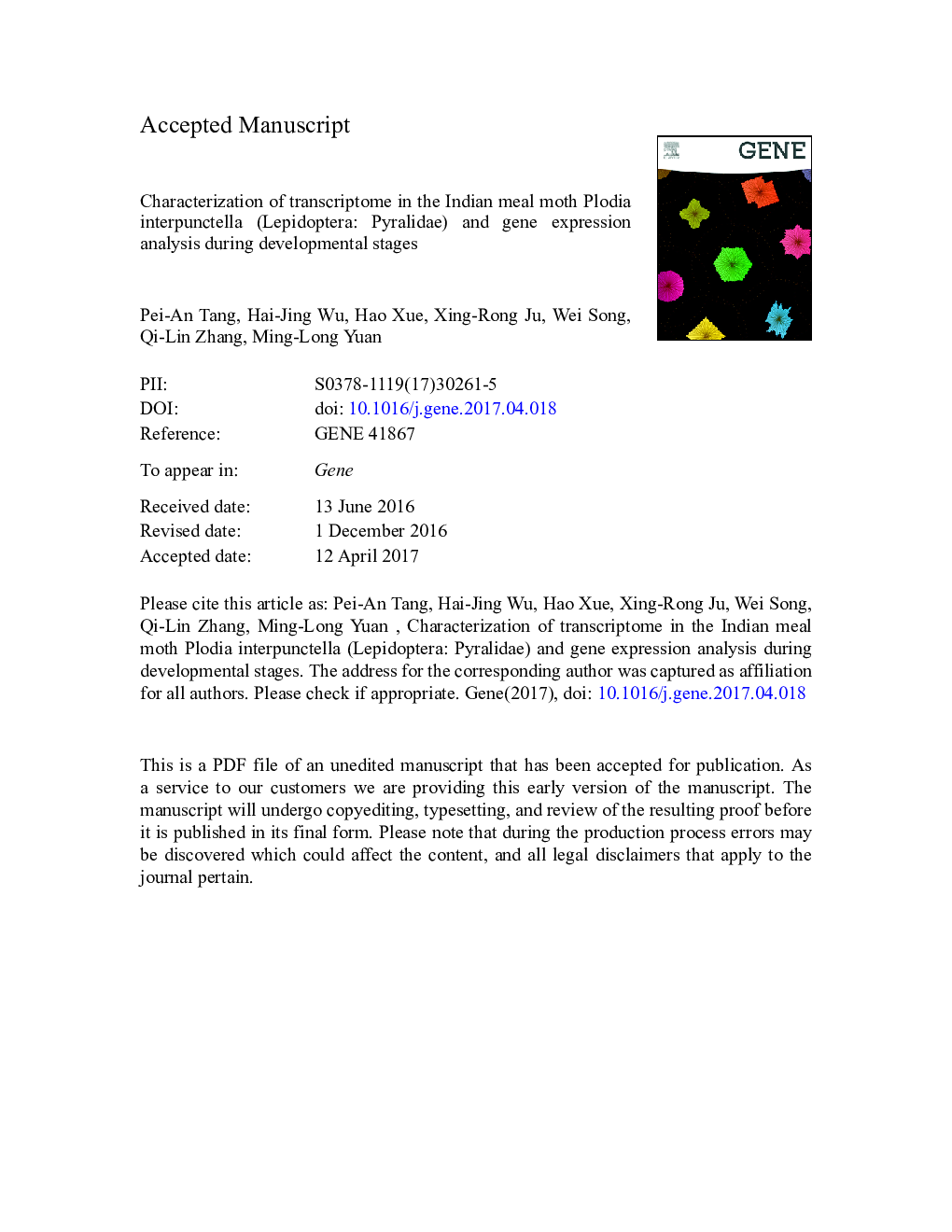| Article ID | Journal | Published Year | Pages | File Type |
|---|---|---|---|---|
| 5589225 | Gene | 2017 | 51 Pages |
Abstract
The Indian meal moth Plodia interpunctella (Lepidoptera: Pyralidae) is a worldwide pest that causes serious damage to stored foods. Although many efforts have been conducted on this species due to its economic importance, the study of genetic basis of development, behavior and insecticide resistance has been greatly hampered due to lack of genomic information. In this study, we used high throughput sequencing platform to perform a de novo transcriptome assembly and tag-based digital gene expression profiling (DGE) analyses across four different developmental stages of P. interpunctella (egg, third-instar larvae, pupae and adult). We obtained approximate 9Â gigabyte (GB) of clean data and recovered 84,938 unigenes, including 37,602 clusters and 47,336 singletons. These unigenes were annotated using BLAST against the non-redundant protein databases and then functionally classified based on Gene Ontology (GO), Clusters of Orthologous Groups (COG), and Kyoto Encyclopedia of Genes and Genomes databases (KEGG). A large number of differentially expressed genes were identified by pairwise comparisons among different developmental stages. Gene expression profiles dramatically changed between developmental stage transitions. Some of these differentially expressed genes were related to digestion and cuticularization. Quantitative real-time PCR results of six randomly selected genes conformed the findings in the DGEs. Furthermore, we identified over 8000 microsatellite markers and 97,648 single nucleotide polymorphisms which will be useful for population genetics studies of P. interpunctella. This transcriptomic information provided insight into the developmental basis of P. interpunctella and will be helpful for establishing integrated management strategies and developing new targets of insecticides for this serious pest.
Keywords
FDRPlodia interpunctellaRPKMDEGsqRT-PCRCoGNGScDNADNA complementary to RNAreads per kilobase per million readsDifferential gene expressionTranscriptomeRNA sequencingNext-generation sequencingCluster of Orthologous GroupsKEGG یا Kyoto Encyclopedia of Genes and Genomes Kyoto Encyclopedia of Genes and GenomesDevelopmental stagefalse discovery rateGene ontologyquantitative real-time polymerase chain reactionDifferentially expressed genes
Related Topics
Life Sciences
Biochemistry, Genetics and Molecular Biology
Genetics
Authors
Pei-An Tang, Hai-Jing Wu, Hao Xue, Xing-Rong Ju, Wei Song, Qi-Lin Zhang, Ming-Long Yuan,
